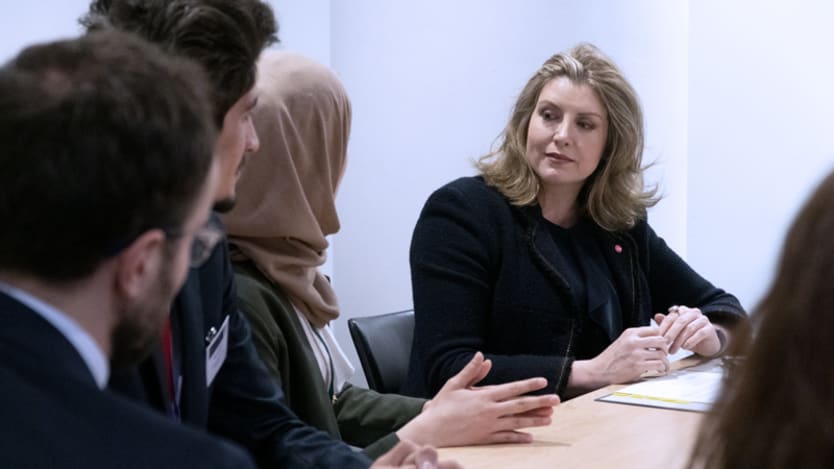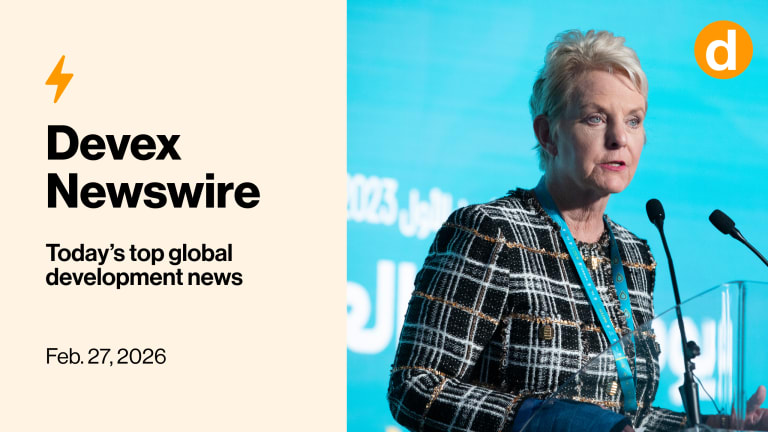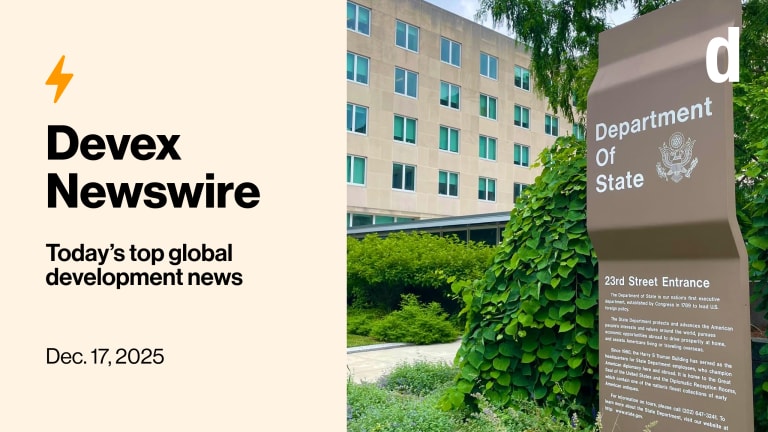Aid community reacts as Rory Stewart replaces Penny Mordaunt as DFID chief

LONDON — Rory Stewart was appointed the new U.K. secretary of state for international development Wednesday evening, after former leader Penny Mordaunt was moved to the Ministry of Defence.
Stewart becomes the department’s fourth leader in three years. He was formerly a joint minister for the Department for International Development and the Foreign & Commonwealth Office, but was shifted away from a development portfolio during a government reshuffle in January 2018.
He is seen as a strong advocate for U.K. aid and is widely respected within the community for his foreign policy expertise. A former diplomat and army veteran, he is also known for his support of stronger coordination between aid and defense operations. He returns to DFID after just over a year at the Ministry of Justice.
Stewart wasted no time in using his new role to defend the U.K. aid budget, which is the third-largest globally after the United States and Germany. Speaking to the BBC’s Robert Peston on Wednesday evening, he reiterated his earlier support for the U.K.’s commitment to spend 0.7% of gross national income on aid — something that a number of Conservative members of Parliament have been challenging in recent months — and spoke specifically about the importance of addressing climate change.
Stewart also made the case for the complementarity of development, diplomacy and defense operations, and the importance of Britain’s continued development leadership in a post-Brexit world.
His appointment was widely welcomed by members of the aid community, many of whom had become concerned in recent months about Mordaunt’s approach to the development brief.
Romily Greenhill, U.K. director of the One Campaign, said: “It’s fantastic to have an aid champion and someone with experience at DFID at the helm at such a critical time. My sense is that Rory has a keen appreciation of how important Britain’s development offer is for our global reputation.”
Gavin Crowden, World Vision UK’s head of policy, advocacy, and campaigns, agreed that Stewart’s “experience in this field stands him in good stead for the task ahead … I fear that Penny Mordaunt, at times, lost sight of the real purpose of aid … Stewart must put U.K. aid back on track.”
Mordaunt had been in the role for 18 months, during which time she had sparked alarm in some quarters by challenging the international rules governing aid spending; and championing an “aid in the national interest” agenda, alongside a greater role for private sector instruments in development.
But she was praised by aid insiders for her focus on disability-inclusive development and her leadership of the response to a safeguarding scandal in the sector.
“We hope DFID will continue to lead on safeguarding and disability inclusion, and also show leadership on a poverty-focused development agenda that ... works to reach the world’s poorest and most marginalized people by prioritizing good quality aid and development," said Stephanie Draper, CEO at U.K. aid network Bond.
Mordaunt took over from former DFID chief Priti Patel, who resigned following a scandal over meetings with Israeli officials in November 2017. Patel had, in turn, replaced Justine Greening after the Brexit referendum in June 2016.
Beyond the top spot, the department has also seen recent high turnover among junior ministers, with two departures in the past few weeks alone, as Alistair Burt and Lord Michael Bates both resigned over Brexit, with Bates citing a “toxic” environment. Burt’s position remains vacant, as Prime Minister Theresa May struggles to fill posts amid a political crisis brought on by the U.K.’s attempt to negotiate its departure from the European Union.
Simon Gill, acting executive director of London-based think tank the Overseas Development Institute, said the upcoming spending review, which will be undertaken later this year to determine public spending for the next four-year period, and the planned new aid strategy would be “important opportunities for Stewart to establish his credentials as a global development leader.
“Stewart's knowledge and practical experience of development overseas, particularly in countries emerging from conflict, makes him a very welcome appointment. He will lead DFID at a critical time where urgent action is needed to accelerate progress on the Sustainable Development Goals,” he added.
Sophie Edwards contributed reporting to this story.
Update, May 2, 2019: This story was updated to include new information and analysis.
Search for articles
Most Read
- 1
- 2
- 3
- 4
- 5








